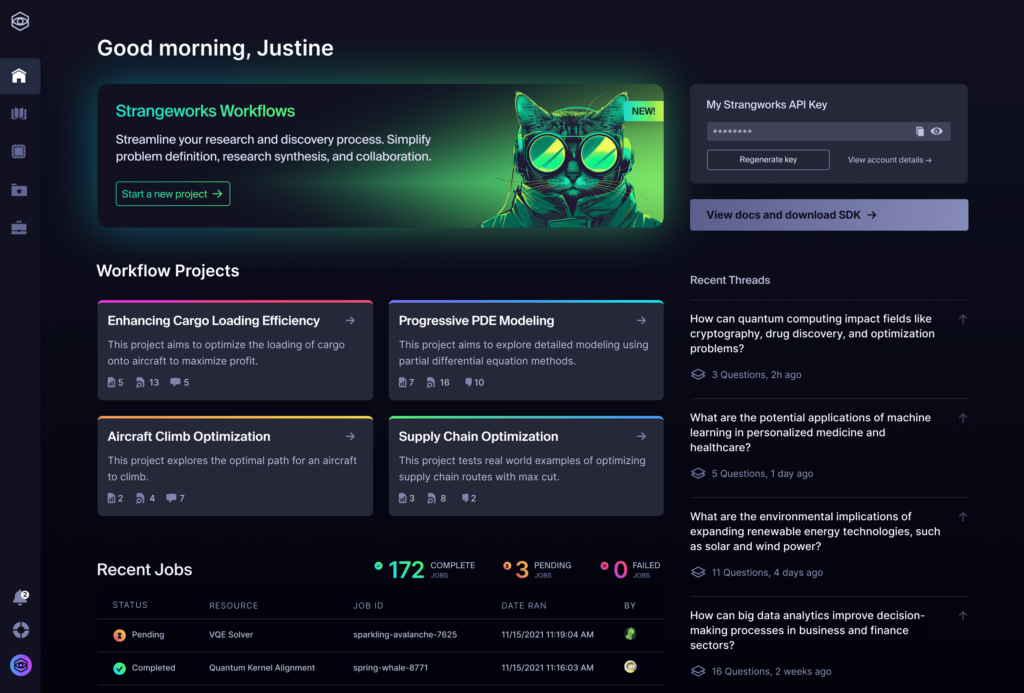
The Auto industry is one of the toughest industrial environments – high capital, technologically sophisticated, highly-complex products with many thousands of parts, severe environmental and product liability laws, fickle customers driven by fashion and (in many cases) no direct control of the retail outlet. Not an easy business! Add to it supply chain disruption due to Covid and life becomes even more difficult. So, what could quantum computing do to help?
Numerous automakers are experimenting with quantum computing (QC) including Volkswagen, BMW, Mercedes, Ford and Toyota plus major suppliers such as Bosch and Denso. Others may have QC initiatives they have not publicly reported. Over the past few years, the VW QC team has published around 15 QC technical papers on the arXiv, very impressive! Also, both VW and BMW have recently joined the German national QUTAC alliance to promote German capabilities in quantum technology. But how can QC add value for automakers and their key suppliers?
QC use-cases described to date are primarily about optimization problems related to issues such as factory scheduling and traffic flow. They mostly use the D-Wave annealers and have not yet demonstrated clear quantum advantage. While these are important issues that also help understand the capabilities of QC, they are not CEO top-of-mind issues. There are much bigger automotive business problems to solve, for example how to transition from fossil fuels to electric, validate the safety of autonomous vehicles and create new mobility services.

Automotive QC teams are doing great work but are typically constrained by resources. A $10 million annual QC budget may seem attractive but is tiny in comparison to a $5 billion annual Corporate R&D budget. This is not wrong it just reflects the immaturity of QC and the near-term priorities of CEOs.
Automotive QC teams need to find EXCITING and NEAR-TERM opportunities for the CEO! Where will these be?
-
Battery chemistry and catalysis? – unlikely. We will need hundreds of logical qubits to do meaningful ab-initio chemistry calculations, and this is looking like a 2030 time horizon
-
Autonomous vehicle control? – unlikely. It requires masses of data and millisecond decision times – not the sweet-spot for quantum computers.
-
Vehicle Design Optimization? – possibly. Reducing cost and weight has a big impact on corporate profits and the environment. Engineering analysis problems could be good candidates for NISQ computers. VW has already published an initial paper in this area.
-
Minimising vehicle inventory? – possibly. While JIT parts deliveries keep factory inventories low, we have $multi-billions of finished vehicle inventory sitting in dealer showrooms, storage lots and in-transit. This is pure waste. Excluding ocean shipments, it should be a no-brainer to achieve a 2-week customer order-to-delivery time. This is a scheduling/optimization problem where QC might help.
-
Understanding customer needs? – unsure. This is certainly an area where machine learning can help. Whether QML speed-up could offer any advantage remains to be seen.
The above is just a small selection, there must be many more. The process for finding them is fairly straight-forward and applies to almost any type of business, not just automotive:
-
Identify the key profit levers for the business and the operational factors that drive these levers e.g. vehicle design-cost reduction
-
Select specific problem/opportunity areas that may be amenable to a computational solution (of any type) and have demonstrable profit impact.
-
Look to see what other industries are doing in QC to generate more ideas (aerospace, chemicals, materials etc.)
-
Focus on specific problems and opportunities where computational complexity is hard and QC might offer advantage
-
Select external hardware and algorithm partners who are best suited to the problem type. Not just IBM, Google, D-Wave etc. but also scan the hundreds of start-ups and universities developing algorithms.
-
Try it and see
When the CEO smells profit, the QC resources will flow!
For more market insights, check out our latest quantum computing news here.




















